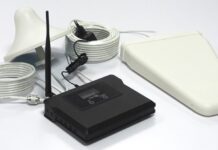Giesecke+Devrient (G+D) and Sony Semiconductor Israel (Sony) are launching a commercial iSIM (integrated SIM) solution that supports remote SIM provisioning. The iSIM plays an ‘important evolutionary step’ in SIM technology, empowering simple and cost-efficient connection, deployment and essential market for Internet of Things (IoT) devices.
The iSIM, or integrated Universal Integrated Circuit Card (iUICC), has the potential to change IoT and make devices more flexible and efficient. It is cost-optimised, smaller, more adaptable and sustainable than previous generations of SIMs and will complement established solutions, such as the pluggable SIM (subscriber identity module) and eSIM.
G+D and Sony are now taking iSIM development a step further by introducing a secure solution that is specifically designed for remote SIM provisioning (RSP), enabling over-the-air activation and management of SIM profiles. This allows for flexibility to choose the preferred cellular network throughout the long lifespan of an IoT device, while also offering a cost-effective solution over its lifetime, according to a recent whitepaper from Transforma Insights.
The capability to set profiles depending on the device’s location simplifies the global scaling of deployments. Additionally, RSP helps streamline production, storage and logistics processes to enhance operational efficiency.
The new solution is based on the iSIM-enabled ALT1350 chipset by Sony, which now supports standardised and RSP. G+D’s SIM operating system (OS) is stored in a tamper-resistant element (TRE) within a system-on-a-chip (SoC), unlike insertable SIM cards or soldered eSIMs. It acts as an isolated hardware component that is combined with a baseband chipset to form a single connectivity module.
The iSIM offers numerous advantages:
- Less hardware comes with a minimal footprint and enables the production of small, lightweight devices and the optimised energy consumption increases device efficiency.
- High security is provided by the isolated hardware in combination with G+D’s secure and certified SIM OS.
Production and warehousing processes can be optimised because there is no need to solder different hardware components or plug SIM cards into the device. - iSIMs also support higher sustainability requirements, with the absence of slots, additional housings, or plastic.
- Due to its low power consumption and small size, the iSIM is a good choice for battery-constrained IoT devices operating in low-power wide-area networks (LPWANs) through narrowband IoT (NB-IoT) or long term evolution for machines (LTE-M) technologies.
- Wearables are also among the potential areas of application. Typical use cases can be found in market segments, such as smart metering, agricultural technology, smart health, tracking and tracing, or the entire spectrum of massive IoT.
“G+D has been investing in the research and development of iSIM technology for a long time. Together with industry partners, we want to accelerate SIM innovation,” says Bernd Müller, head of technology and strategy in the connectivity & IoT business at G+D. “A good example for this is our cooperation with Sony, under which we are now announcing the industry’s first commercial iSIM with remote SIM provisioning. This achievement empowers our customers to unlock the full potential of the IoT with flexible and cost-optimised connectivity. We are convinced that this will be another important milestone in the iSIM evolution.”
With the AirOn360 central SIM management solution, G+D provides a service for over-the-air administration of iSIMs. It supports both remote SIM provisioning of network operator-specific data and update management.
The solution complies with GSMA RSP specifications for consumer, machine to machine (M2M) and IoT applications and helps OEMs (original equipment manufacturers) or device owners manage the iSIM lifecycle efficiently and securely. RSP in accordance with the new GSMA SGP.32 standard for M2M/IoT use cases empowers IoT device operators with flexibility in their choice of mobile network operators. This allows them to choose the optimal provider in terms of cost, service quality, or network coverage, for example.
“Our ALT1350 baseband chipset combined with G+D’s SIM operating system and management solution, has led to a powerful, simple, and secure IoT connectivity management system that will drive the market forward,” added Dima Feldman, VP of product management & marketing at Sony Semiconductor Israel.




















